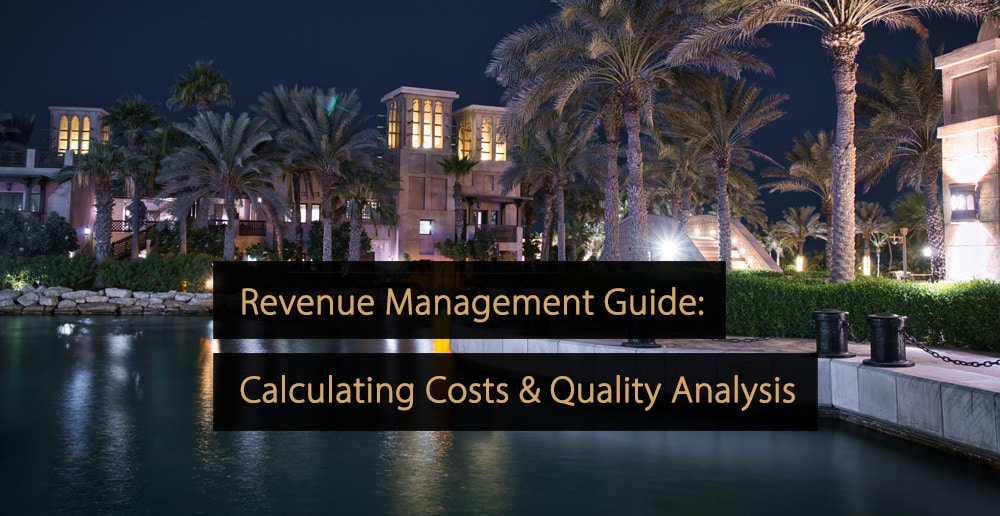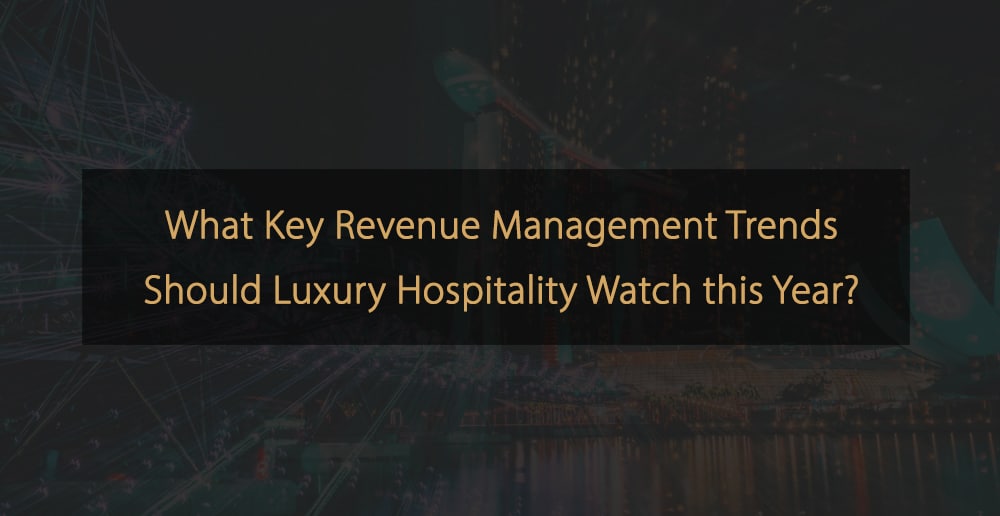It’s an antiquated idea that revenue management works independently from sales and marketing. Each department impacts the other and influences the hotel’s overall profitability. Every business goal contributes to the bottom line. When the revenue-generating departments work together on shared goals, they can contribute to a fatter bottom line.
In today’s world, hotel bookings start with getting found online. Without being found, the hotel won’t get the bookings. Once found, ratings and reviews encourage prospective customers to book. Ratings and reviews play a pivotal role in encouraging those bookings. In other words, the hotel’s brand reputation.
5 Brand Reputation Signals That Impact Revenue Management
One way the hotel can start integrating these departments is to create shared metrics. For example, a metric like Total Revenue Per Available Room (TRevPAR) tracks revenue and profits. Each department can track its activities accordingly.
Driving profitable bookings always starts with a stellar online presence.
1. Online Visibility
Prospective customers either Google hotels in [city] or go straight to an OTA like Booking or a reviews portal like TripAdvisor. They want to see a welcoming online presence with current photographs, good reviews, and high ratings on the OTAs.
According to the American Marketing Association, 81% of people rely on reviews to make a purchase. Word of mouth has always been a powerful source of information, and reviews and ratings can encourage a customer to choose a property or room….or not.
Franco Grasso Revenue Team (FGRT), a revenue management consulting and outsourcing company, found that instilling revenue management principles and integrating them with marketing to enhance the brand reputation by encouraging reviews have positive results. Hotels with revenue management and ratings of nine or more on Booking or 4.5 or more on TripAdvisor means a 3-star hotel may be able to sell rooms at $1000 dollars or more on a peak night and get positive reviews.
Properties can also use ancillary revenue such as parking and breakfast to improve the brand reputation. See how one Italian property doubled revenue while reaching TripAdvisor’s Top Ten.
2. Guest Reviews
Online reviews are an opportunity. Current positive reviews can boost online visibility and enhance the hotel’s brand reputation. Future guests read past guest’s reviews and pay attention to hotel responses. It’s important to respond quickly and courteously to any questions or complaints.
Hoteliers who don’t pay attention to their online reviews will find themselves at a disadvantage as their visibility will sink and competitors will outrank them.
Besides visibility, guest reviews have the advantage of letting hotel staff know what they like and don’t like. From cleanliness to linen quality, guest reviews often give insights on ways to improve.
Gain more positive reviews and improve revenue management numbers with excellent hotel reception.
3. Customer Segmentation
Just as there are a variety of hotels, there are many different types of customers. Families traveling over summer holidays naturally have different concerns than business travelers. Segmenting the hotel’s customers makes it possible to tailor relevant promotions.
Effective rate adjustments are a cornerstone of revenue management. Take the popular family room. Many hotels lose money when selling these because they simply add a bed, call it a triple or a quadruple, and add a few dollars.
Yet experienced revenue managers realize the room is worth far more to the family staying in it. In some cases, it’s possible to offer incentives to area attractions and boost the room rate from $100 to $500 with dynamic promotions. The customers are still happy, and the hotel receives more revenue.
Customer data and stay patterns offer useful ideas for upselling and cross-selling. Hotels in every location can use such data to develop profitable ancillary revenue alongside dynamic rates for even greater profitability.
4. Seal the Spillage
Spillage is an expensive problem. Spillage sells rooms too early at low rates. As demand rises, the hotel is unable to profit from higher rates because they’ve oversold at below-market rates.
This happens all the time. Sometimes, it’s due to a lack of communication among the revenue management, sales, and marketing departments. Sometimes, it’s due to outdated wholesale pricing or releasing too much inventory too soon and missing the channel manager.
Combine revenue management principles throughout the hotel’s departments to reduce spillage.
5. Safeguard the Spoilage
Spoilage is unsold inventory. Sometimes, the hotel’s rates are set higher than the market will bear, or the dynamic rates fluctuate too much.
Every hotel has a price floor per room. Sharing data and insights about area events, customer segments, and channel and distribution strategies among revenue-generating departments can align hotel pricing with the hotel’s brand reputation.
Effective revenue management relies on the hotel’s brand reputation and vice versa. Addressing revenue management principles throughout the hotel departments improves the brand reputation.
Revenue management and brand reputation are inextricably linked in modern hospitality. By integrating departmental efforts, maintaining strong online presence, and leveraging customer feedback, hotels can optimize pricing strategies while building trust – ultimately driving sustainable revenue growth and profitability.
Free Guide: 10 Things To Know About Revenue Management
Hotel Revenue Management is an innovative economic discipline that involves the harmonious and integrated use of sales channels, distribution strategies, and market-oriented dynamic pricing to obtain the highest profits possible from each hotel.
This ebook is an introduction to revenue management for executives, general managers and hotel owners. Within the ebook “10 Things To Know About Revenue Management”, you’ll learn the principals of revenue management.
Click here to download the Guide “10 Things To Know About Revenue Management”.
More Tips to Grow Your Business
Revfine.com is the leading knowledge platform for the hospitality and travel industry. Professionals use our insights, strategies, and actionable tips to get inspired, optimize revenue, innovate processes, and improve customer experience.Explore expert advice on management, marketing, revenue management, operations, software, and technology in our dedicated Hotel, Hospitality, and Travel & Tourism categories.








Leave A Comment